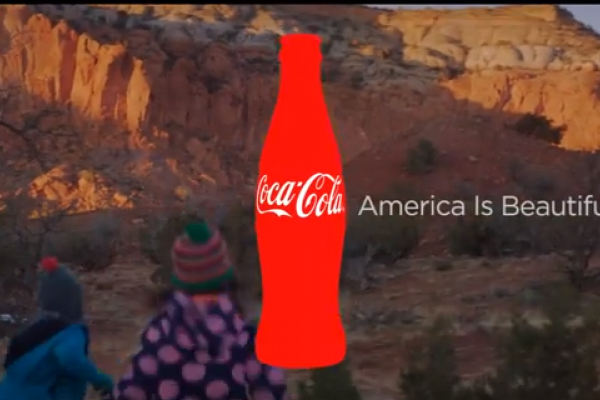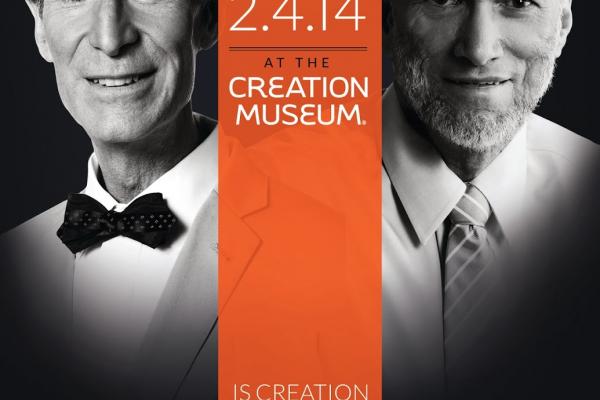The highlight of the Super Bowl for me was Coca-Cola’s "America is Beautiful" commercial. The images of the American landscape are amazing and the song was beautiful. At first I was a bit confused by the different languages singing "America the Beautiful" (I’m slow…), but I caught on about halfway through. When the commercial ended, I looked over at my wife and said, “Wow. That was beautiful … Not worth four million dollars, but that was good.”
For the moment, let’s deal with any cynicism that the Coca-Cola Company is simply trying to sell us their product. Of course they’re trying to sell us their product; that’s why they spent millions on their ad, but along the way, Coke pointed to the reason that I love the United States. I love my country because it is a nation that welcomes the “Other.” Indeed, we haven’t always been good at this, and we still struggle with it, but the United States is a nation of immigrants. Even Native Americans, who have tragically been excluded from the land they’ve lived on for thousands of years, were originally immigrants who were welcomed by this land. This land has a long history of welcoming people into it, and so any act of excluding immigrants goes against its ideal of welcoming the “Other.”
The U.S. needs to quit its crude oil habit. TransCanada needs to see the individuals whose health is directly threatened by Keystone XL. The president and legislators alike need to act for the welfare of not only this generation but for the generations to come, if we indeed want to see the flourishing of future generations. We need to admit to our addiction to oil and identify its harmful ecological impact for what it is.
As a person of faith, I want to see our landscapes, waters and skies restored to wholeness. I am compelled by the love I’ve received from God and God’s people to work alongside others for the common good of all. Having experienced the crisp June evenings of Minnesota as well as the asthma-inducing smog of Hong Kong, I know both the beauty of fresh air and green spaces and the dullness of pollution and gray skies. The chances of enjoying the former are quickly dwindling at our current rate of oil consumption, but we still have time to prevent further environmental degradation, if not for future generations then at least for those of us who still look forward to the rest of their lives, no matter our age.
Whenever I hear about someone else making a case for Young Earth Creationism in the name of Christianity, I’m embarrassed, once again, to associate myself with them. And people wonder why many of us prefer to identify as “Jesus followers” or “Spiritual but not Religious” rather than be lumped in with the Ken Hams of the world.
Duh.
The thing is, a healthy number of us who consider ourselves to be Christian embrace science. We think critically. We accept the likelihood that much we think we understand about the world, the universe, and about our faith can (and should) change as we learn new things. We understand that faith is more about questions than answers, and that the prime mover in our faith practice is to be more like Jesus in our own daily walk, rather than focusing so much on making others more like us.
The desire of a vocal minority (yes, that’s what I said, and I meant it) of Christians to cling to a notion that the entire universe is a few thousand years old, despite the clear physical evidence to the contrary, points less to a reasonable alternate view of the observable world. Rather, it points to a desperate attempt to maintain a dying voice in the cultural conversation.
At the beginning of the 21st century, Americans are used to thinking of slavery as a horror, yes, but one that was banished from these shores nearly 150 years ago. If only that were so.
The trafficking of men, women, and children for labor or sexual exploitation — or both — fuels an underground economy of misery in our midst in many major metropolitan areas and even in rural America. Immigrants without legal status, children in foster care — all those with tenuous community roots — are particularly vulnerable to exploitation.
The U.S. Department of Justice estimates that more than 300,000 children are at risk of being prostituted in the U.S. and that the average age of entry into prostitution for a child victim here is 13 to 14 years old. According to the DOJ, a pimp can make $150,000 to $200,000 per child each year, and the average pimp controls four to six girls. The United Nations estimates that traffickers generate more than $9 billion within the U.S. for both labor and sex trafficking.
As I stated yesterday, I believe that America’s justice system is broken and in need of desperate repair. One of those areas is the practice of putting our citizens to death, something I believe that all Jesus People should resoundingly oppose.
When I was a conservative evangelical, I was a huge supporter of capital punishment for all of the standard reasons. I even had a quick response when folks correctly brought up the hypocrisy of being against abortion while simultaneously being pro-death penalty, a position I previously argued you can’t hold and still call yourself “pro-life.”
However, when I decided to follow Jesus instead of simply being a Christian who paid him hollow worship while conveniently ignoring the red words, I was forced to abandon my support of the death penalty (and abandon my support of violence in general) as part of Following Jesus 101.
While America’s broken justice system is a complex issue, perhaps the first area we can fix is by abolishing the death penalty in all 50 states. Here’s why I think Jesus People should be leading the charge on this issue:
A United Nations panel on Wednesday blasted the Vatican for protecting itself rather than victims of sexual abuse, and it called on the Holy See to create what it called an “independent mechanism” to investigate new charges of abuse.
The 16-page report from the Committee on the Rights of the Child accused the Vatican of “systematically” adopting policies that allowed priests to rape and molest thousands of young people over a span of decades. It also calls on the church to remove known or suspected abusers from its ranks immediately.
“The Committee is gravely concerned that the Holy See has not acknowledged the extent of the crimes committed, has not taken the necessary measures to address cases of child sexual abuse and to protect children, and has adopted policies and practices which have led to the continuation of the abuse by and the impunity of the perpetrators,” the report said.
Earlier this morning, I saw a tweet from @JesusofNazareth316: Blessed are they who stop using the word “#missional," which caused me to post something on Twitter and Facebook asking people what their favorite church jargon is — mine being “Missional Imagination.” The response was unbelievable and also quite interesting.
I realized upon reading the #meaninglesschurchjargon tweets that the responses tended to fall into several categories:
1. Mainline Protestant church consultant/bad seminary class lingo. (“Missional imagination”; congregations as “centers for evangelical mission”; pastors as “transformational leaders”; referring to members as “giving units”; and churches “doing life together”) this language has a commonality with corporate jargon and like corporate jargon, refers to the culture and practices related to an organization.
IDEA: Let’s make sure that in seminary classrooms and at church conferences and in congregational life when we use a term or a phrase, that it points to an actual thing or person or event and is not just a string of words that sound like something meaningful but, in fact, lack real meaning. There is a reason that my computer does not recognize the word Missional. Try it at home. Go ahead. Type that shit and see.





